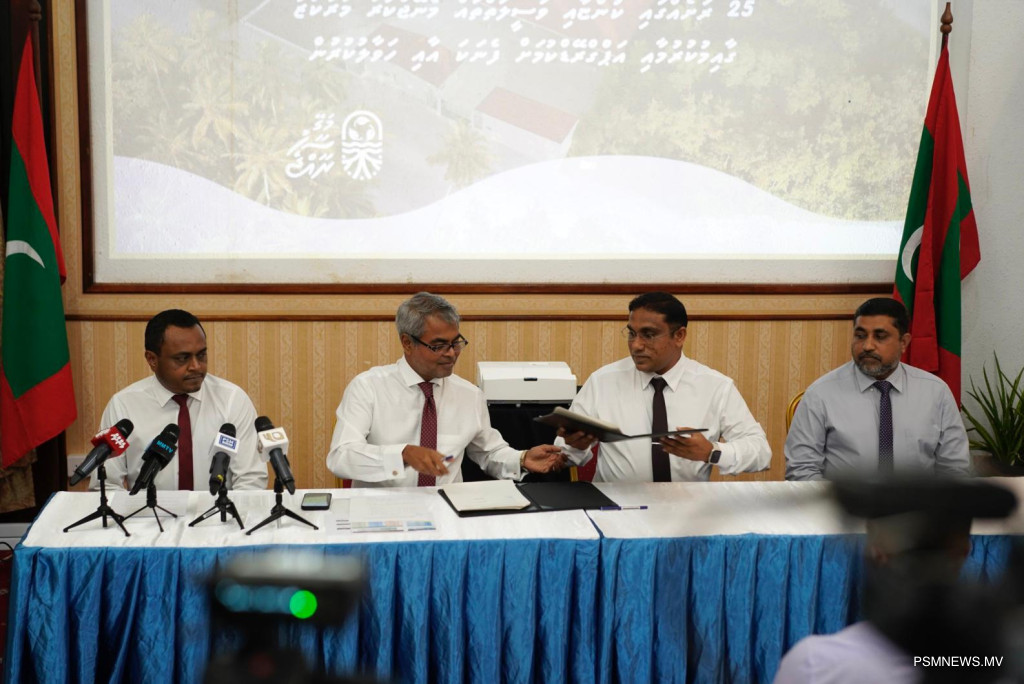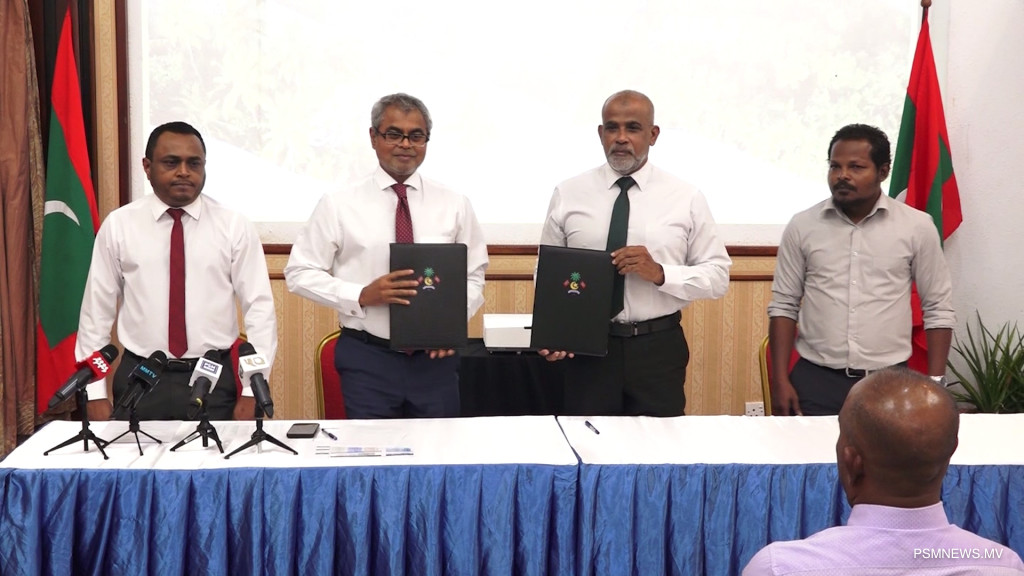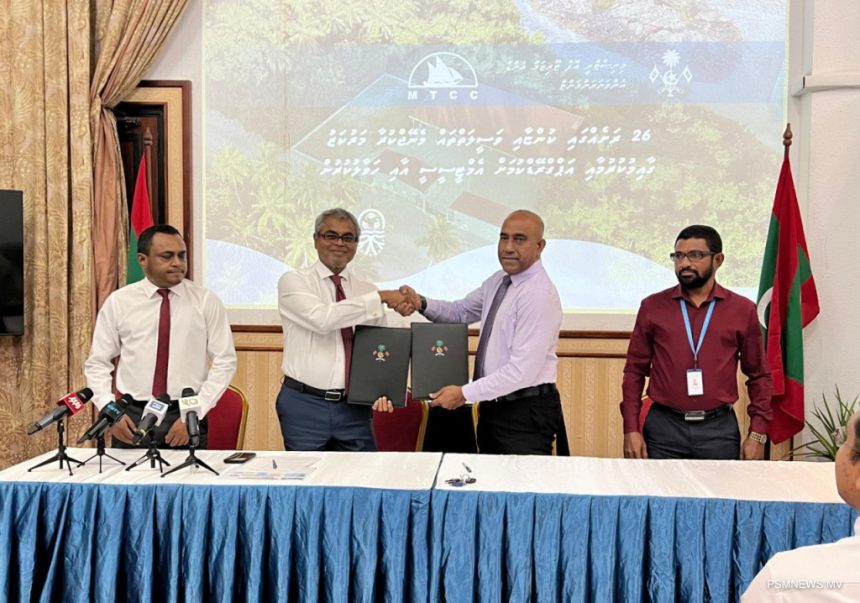In a historic stride towards environmental sustainability, the Maldivian government has embarked on its most extensive waste management initiative to date, aiming to revolutionize waste practices across the archipelago.
During the ceremony tonight, Minister of Tourism and Environment Thoriq Ibrahim announced the development of waste management centers on 75 islands, marking a pivotal moment in the nation’s environmental efforts. This initiative aligns with President Dr. Mohamed Muizzu’s vision to equip every Maldivian island with state-of-the-art waste management facilities within the year.
The Ministry has entrusted three state-owned enterprises with this monumental task:
- Maldives Transport and Contracting Company (MTCC): Assigned 26 islands.
- Fenaka Corporation: Responsible for 25 islands.
- Road Development Corporation (RDC): Overseeing 24 islands.
Minister Ibrahim emphasized the project’s significance, stating, “This endeavor is crucial not only for environmental preservation but also for bolstering local tourism. As tourism flourishes, maintaining pristine islands becomes increasingly vital.”
Leaders from MTCC, Fenaka, and RDC have pledged to adhere to the project’s timeline, with site mobilization set to commence this month and construction activities slated to begin post-Ramadan.

This initiative is part of a broader strategy to address waste challenges in the Greater Malé region and surrounding islands. The Greater Malé Environmental Improvement and Waste Management Project aims to establish an integrated solid waste management system, incorporating advanced waste-to-energy technologies and emphasizing the reduce-reuse-recycle (3R) approach.

Additionally, the Maldives is constructing a waste-to-energy facility on Thilafushi Island, designed to process approximately 500 tons of waste daily. Upon its anticipated 2025 completion, the facility will divert around 200,000 tons of waste annually from landfills, generating 100,000 MWh of renewable energy and reducing CO₂ emissions by 200,000 tons—equivalent to the emissions from 40,000 cars.
These comprehensive measures underscore the Maldives’ commitment to environmental stewardship and sustainable development, ensuring the nation’s natural beauty and resources are preserved for future generations.




